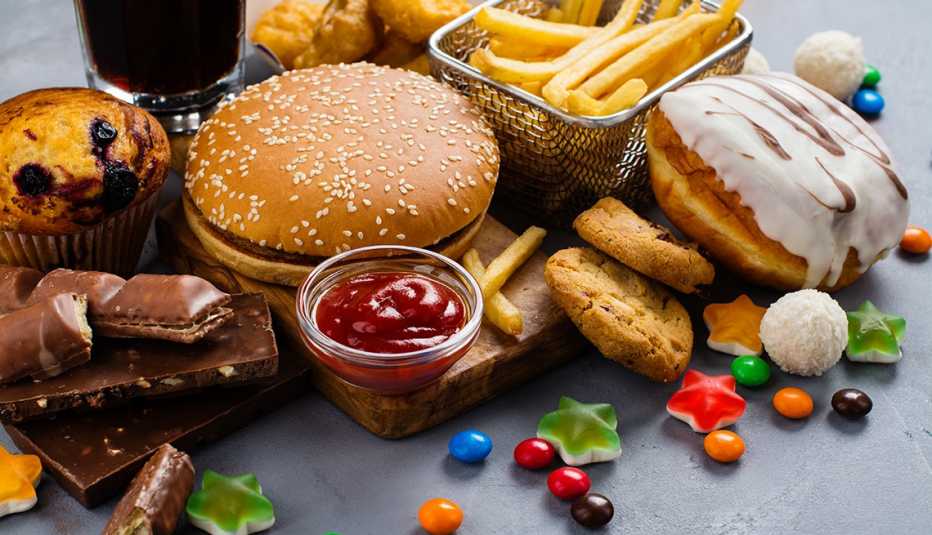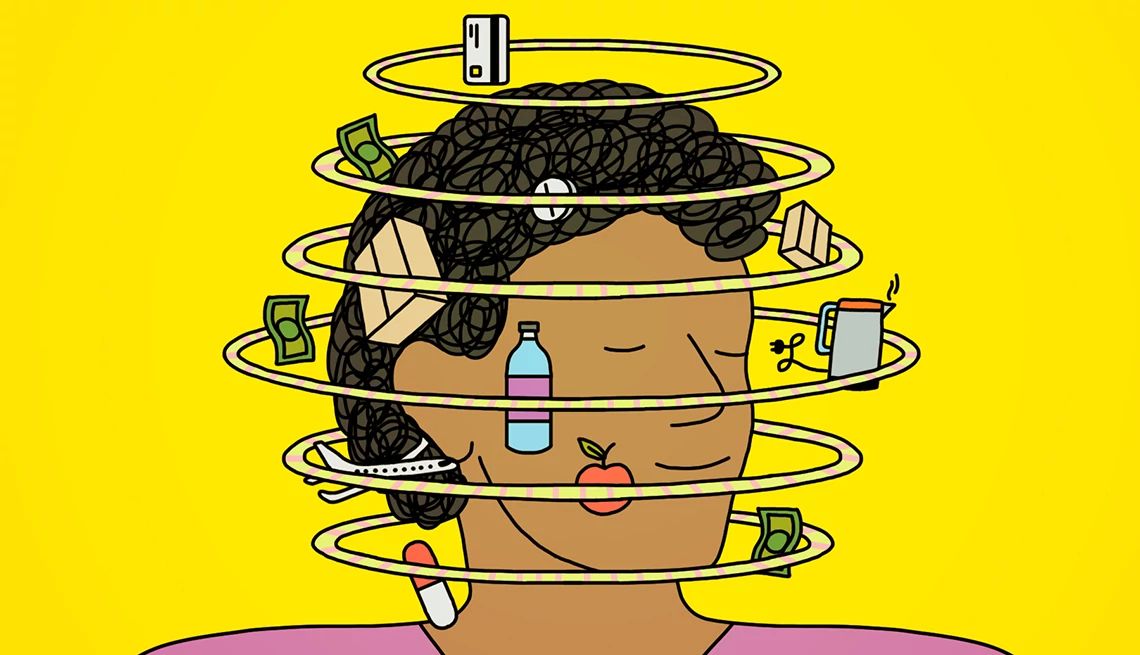Staying Fit


If you’re looking to keep your brain healthy as you age, you may want to lay off the packaged pastries for breakfast, frozen pizza for lunch and ice cream in the evening. Accumulating research suggests that a diet chock-full of highly processed foods could contribute to worsening brain health.
A study published May 22 in the journal Neurology found that adults 45 and older who recorded a higher intake of ultraprocessed foods — foods high in sugar, fat and salt, and low in protein and fiber — had a greater risk for cognitive decline and stroke, while those who kept to a minimally processed diet saw a decreased risk for both conditions. The association was especially pronounced among Black participants: Black adults who ate more ultraprocessed foods had a 15 percent increase in their risk of stroke.


AARP Membership— $12 for your first year when you sign up for Automatic Renewal
Get instant access to members-only products and hundreds of discounts, a free second membership, and a subscription to AARP the Magazine.
Researchers have also linked a steady diet of our favorite salty snacks, high-sugar treats and preservative-laden frozen dinners to an increased risk of dementia. Similar to this recent report, the authors of a study published in Neurology in 2022 discovered that replacing processed foods with minimally processed options was associated with a 19 percent lower risk of dementia.
What’s more, research presented at the 2022 Alzheimer’s Association International Conference found that people who consumed the highest amounts of ultraprocessed foods (more than 20 percent of their daily caloric intake) saw a faster decline in memory, planning and organizational skills over a span of several years, compared with those with lower consumption.
“There are a lot of studies that have already shown that eating [healthy] is good for your heart, but we’re starting to see trends that eating a heart-healthy diet may also be good for your brain,” says Rebecca Edelmayer, senior director of scientific engagement for the Alzheimer’s Association.
An earlier report from AARP’s Global Council on Brain Health reached a similar conclusion — that what you eat impacts the health of your brain and that foods high in salt, sugar, excess calories and saturated fats don’t do it any favors. Still, an analysis of national data published in BMJ Open found that ultraprocessed foods represent more than half (58 percent) of all calories in the U.S. diet.


































































More on Health
Are You Addicted to Junk Food?
Research suggests many older adults are hooked on highly processed foods
How to Nourish Your Brain
Use the S.H.A.R.P. method to kick-start a healthy way of eating
AARP Smart Guide to Keeping Your Memory Sharp
22 science-backed ways to growing a healthier, happier brain, now and in the future
Recommended for You